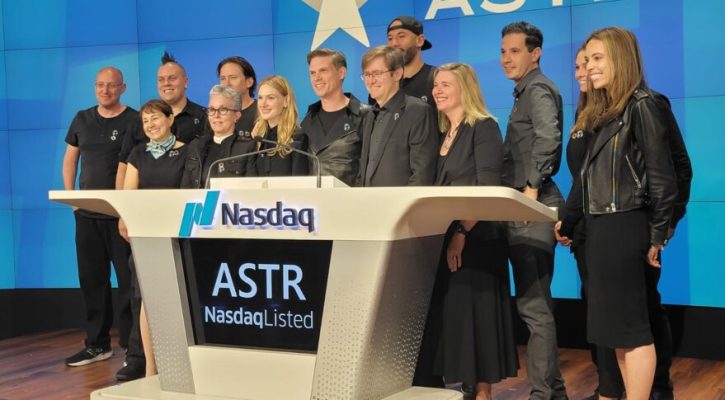Astra is bringing on Silicon Valley veteran Axel Martinez as its new chief financial officer, a C-suite change that in many ways demarcates a new chapter for the space company.
Martinez’s career includes a decade tenure at Google, where he held multiple roles, including head of capital markets; VP of treasury at Uber; and CFO at Virgin’s Hyperloop One. Most recently, he was CFO at home building startup Veev. Current Astra CFO Kelyn Brannon will finish out this financial quarter before Martinez takes up the position at the start of Q4.
A person with knowledge of the change told TechCrunch that hiring Martinez, who has deep experience with capital markets, is a strategic move for Astra as it navigates capital management and scaling its launch, propulsion and space products businesses.
In many ways, Brannon seemed tailor-made for Astra as it shifted from a startup to a public company; according to her LinkedIn, she’s assisted multiple companies navigate their entrance to the public markets. Indeed, she guided Astra through its merger with blank-check firm Holicity in 2021, in a deal that injected the company with around $500 million. The SPAC deal also had a notably small number of redemptions, which totaled just a little over $100,000, according to a filing with the U.S. Securities and Exchange Commission.
But Astra is firmly in a new stage — and the markets are, too. Capital has become very expensive; there’s now a more high-pressure and risk-averse equity environment, where raising cash may not be as easy as it was even at the beginning of this year. Meanwhile, many space investors and private companies have cooled on SPAC deals, with Italian company D-Orbit and weather satellite analytics company Tomorrow.io reversing their merger plans this year (though it should be noted that Intuitive Machines will be moving forward with its SPAC).
Much of this cooling is due to plummeting stock prices and valuations for companies that went public through SPAC mergers. That includes Astra, whose shares have steeply fallen since its debut on the Nasdaq last July. At the end of the company’s first day on the market, stock was trading at $12.90 per share; by close of market Thursday, it had fallen to just $0.62 per share. Market confidence in Astra has been further shaken by a handful of launch failures, most recently a mission in June to launch two Earth science CubeSats for NASA under the agency’s TROPICS program.
All told, Astra ended last quarter with around $200 million on hand and no debt. The company has been investing a lot of capital over the last few quarters, expanding its 250,000-square-foot rocket factory in Alameda, California, building a dedicated 60,000-square-foot rocket engine factory and growing its workforce by 300. The task now before it is figuring out how to best position itself amid an increasingly crowded field of players, both on the launch services and rocket engine sides, and how to deploy that existing capital to bring the company real revenue growth. Astra’s hoping Martinez will be the right talent to navigate these choppy waters.
The original story contained a typo stating that Astra’s Alameda factory was 25,000 square ft. The story has been updated to reflect that it is 250,000 square ft.
